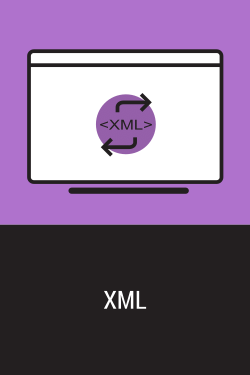
Module 553150
XML (WS 2020/2021)
Lecturer

Tutors

Contact
If you have any questions concerning this course or the exam as a participant, please contact us via OPAL.
We also offer a Feedback system, where you can provide anonymous feedback for a partiular session to the presenter on what you liked or where we can improve.
Announcements
The tutorials will start in the first week of November via BigBlueButton. The access code is provided to all course participants via OPAL.
The lecture will take place as a live online event in a bi-weekly fashion. Please check our course calendar regularly for the concrete dates and webroom link. We will publish additional material at the bottom of this website for your time-independent self-study each other week.
The first lecture will be held on Tuesday, 20 Oct 2020. You can join the lecture via Zoom. The access code was sent to you as a course participant in advance via OPAL.
Please subscribe to the tutorial via OPAL.
Conduct
The XML Tools lecture is typically offered in the winter semester.
SWS (V/Ü/S/P):2/2/0/0
Contents
eXtensible Markup Language (XML) is the basis of a number of developments in the World Wide Web. XML plays a central role in data transport and integration as well as in many modern software applications. The course offers a basic introduction into XML and its applications in different contexts of distributed systems, distributed software and Web. Various state-of-the-art application scenarios and pragmatic tools are presented. The topics covered:
- Introduction to Markup languages and XML
- Basic approaches, such as DTD, XML schemas, XML editors, XML applications, linking, XPath, XSL/XSLT
- Data formats and tools, i.e. SVG, RSS
- Semantics Formats and tools, i.e. RDF, OWL, digital rights with Creative Commons
- User interface Formats and tools, i.e. XHTML, XForms, MicroFormats
- Application logic Formats and tools, i.e. existing XML Web Services for advertising, blogs, collaboration, content analysis, E-commerce, maps, social bookmarking, search, sight/sound/motion, storage, tagging
Qualification Objectives
- Basic understanding of Markup languages
- Familiarity with XML applications and tools
- Ability to make use of XML applications and XML Web services in the creation of sophisticated distributed applications
- Basic Semantic Web knowledge
- Ability to use metadata technologies, in particular for realizing Semantic Web resources.


